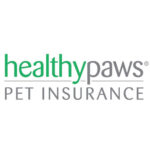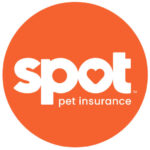Best Pet Insurance For Bichons Frises In 2025
From my perspective, Healthy Paws offers the finest insurance coverage for Bichons Frises.
We’ve saved shoppers an average of $350 per year on their pet insurance.
Bichons Frise owners are often concerned about their dog’s health. Bichons Frises, being purebred, are more likely to suffer from genetic health conditions than mixed-breed dogs. Sadly, 4 out of 5 pet parents can’t cover an unexpected $500 vet bill without help. Pet insurance helps minimize that financial risk.
In this review, we’ll highlight top pet insurance providers for Bichons Frises, helping you find the best plan. Similar to human health insurance, pet insurance reduces out-of-pocket costs and offers better treatment options. The bonus? It’s much more affordable than private health insurance.
Best Pet Insurance Companies For Bichons Frises, 2025
Various pet insurance companies specialize in Bichons Frises, offering similar assurances in pet health and financial protection, yet they differ in specific details. What works for one Bichons Frises may not be optimal for another.
Here’s our review of top pet insurers for Bichons Frises.



Compare The Best Pet Insurance Companies For Bichons Frises
As you can see from our breakdown of the best pet insurance companies for Bichons Frises shown above, many high-quality companies are vying for the top spots. You can also see that each has its own particular strengths. Here’s a snapshot to give you a glance into each insurer:
| Overall Rating | Best For | Waiting Period | Reimbursement % | Benefit Limit | Get A Quote | |
|---|---|---|---|---|---|---|
| Healthy Paws |
|
Overall |
15 days accident/illness |
70%, 80%, 90% |
Unlimited annual and lifetime |
Instant Quote |
| Lemonade |
|
Cheap |
2 days accident, 14 days illness |
70%, 80%, 90% |
$5,000 to $100,000 annually |
Instant Quote |
| Many Pets |
|
Puppies |
15 days accident/illness |
70% or 80% (Most States) |
Unlimited annual and lifetime |
Instant Quote |
| Pumpkin |
|
Older Dogs |
14 days accident/illness |
90% |
$10,000, $20,000 or unlimited |
Instant Quote |
| Spot |
|
Multiple Pets |
14 days accident/illness |
70%, 80%, 90% |
$2,500 to unlimited |
Instant Quote |
Our Methodology
Evaluations and ratings were shaped by an assessment of each insurer's website, customer feedback, reviews from other sites, and personal experiences with pet insurance coverage.
Quotes Analyzed
Years Of Experience
Brands Reviewed
Research Hours
Detailed Reviews Of The Best Bichon Frise Insurance Companies
Best Overall
Key Statistics
Why We Like Them
⇅Healthy Paws is recognized for its pet insurance offering unlimited claim payouts and no per-incident maximums or caps. This eliminates the stress of deciding your pet’s care based on policy limits. Their policy is straightforward, without expensive add-ons, and they accept visits to any licensed veterinarian. Claim submissions are easy via their mobile app or website, with most processed within two days.
Benefits & Drawbacks
⇅- There are no set limits on annual or lifetime payouts.
- 30 days to return for a refund.
- The typical turnaround for claims is within two days.
- There's a chance of making direct payments to the vet. ✓
- A standard wellness check is unavailable. ✘
Runners-Up For Best Overall
Key Statistics
Why We Like Them
⇅Lemonade emerged as the most economical pet insurance option for Bichons Frise. Unlike Healthy Paws, Lemonade offers coverage limits from $5,000 to $100,000 per year, with premiums increasing based on the selected limit. Their standard policy includes coverage for accidents, illnesses such as cancer and heart disease, common ailments like broken bones, and hip dysplasia in older Bichons Frise. However, they do not cover preexisting conditions, dental problems, behavioral issues, or elective procedures, which is standard for most insurers.
Benefits & Drawbacks
⇅- Opt for an available wellness option.
- Start accident coverage within two days.
- Combine your pet insurance with Lemonade's home, renters, or car insurance and get 10% off. ✓
- Pet owners cannot reach telehealth services at all times.
- Including vet checkup fees in your plan involves an extra charge.
- Prescription pet food and microchipping are not reimbursable. ✘
Best For Puppies
Key Statistics
We We Like Them
⇅ManyPets provides superior insurance coverage for puppies. Pre-existing conditions do not affect rates, and treated conditions may qualify for coverage after 18 months, with unrelated conditions remaining eligible for insurance. Young Bichons Frise, like all puppies, are prone to illnesses like poisoning, ingestion of foreign objects, and accidents due to their energetic behavior. Insuring them early significantly reduces the risk of exclusions for pre-existing conditions in the future.
Benefits & Drawbacks
⇅- Offered in more than 40 different states
- Pays for vet visits related to sickness and injury.
- Gives the option of wellness programs. ✓
- Pet telehealth assistance is not offered 24 hours a day.
- Pet behavioral therapy is not eligible for coverage.
- Alternative therapies are not within the insurance coverage. ✘
Best For Older Dogs
Key Statistics
Why We Like Them
⇅With age, Bichons Frise are prone to genetic ailments like cruciate ligament problems and hip dysplasia, which can lead to expensive treatments. Pumpkin pet insurance ensures immediate coverage for these conditions without waiting periods and includes reimbursement for veterinary exams if your senior Bichons Frise requires treatment. They provide extensive coverage options for various Bichons Frise health issues, including surgeries and dental care, offering three deductible options and a standard 90% reimbursement rate.
Benefits & Drawbacks
⇅- Optional health and wellness plan offered
- Special discounts for multi-pet insurance policies.
- For dogs and cats aged 8 weeks and older, receive a 90% refund. ✓
- Pet telehealth isn't offered on a 24/7 basis.
- Accident coverage by itself isn't an option. ✘
Best For Multiple Pets
Key Statistics
Why We Like Them
⇅Many Bichons Frise owners have multiple pets because they are known for their friendly nature. Spot provides a 10% discount for insuring more than one pet, which can lead to substantial savings. Their optional preventive care plan covers wellness services such as an annual vet visit, fecal test, and teeth cleaning, and includes some vaccinations. Spot offers a 30-day money-back guarantee if you’re unsatisfied with their coverage or service. They also reimburse up to 90% of eligible vet expenses and provide a 24/7 vet helpline. Plus, you can visit any U.S.-licensed veterinarian or specialist.
Benefits & Drawbacks
⇅- Touches upon microchip integration
- You can opt for a $100 deductible plan.
- Access pet telehealth support 24/7 for your pet's health needs. ✓
- Accidents come with a 14-day waiting period, whereas some top competitors process claims within 2 days. ✘
Average Cost Of Pet Insurance For Bichons Frises
| Company | Deductible | Annual Reimbursement % | Monthly Price | Age of Dog |
| Healthy Paws | $500 | 70% | $70.30 | 5 year old |
| Lemonade | $500 | 70% | $40.00 | 5 year old |
| Spot | $500 | 70% | $73.34 | 5 year old |
| Healthy Paws | $500 | 80% | $36.52 | 1 year old |
| Lemonade | $500 | 80% | $20.67 | 1 year old |
| Spot | $500 | 80% | $53.80 | 1 year old |
| Healthy Paws | $500 | 70% | $37.64 | 3 month old |
| Lemonade | $500 | 70% | $29.13 | 3 month old |
| Spot | $500 | 70% | $83.12 | 3 month old |
Average Cost Of Typical Vet Procedures
| Typical Vet Procedure | Average Cost Of Procedure |
| Puppy vaccinations | $75-100 |
| Flea & tick prevention | $40-200 |
| Heartworm prevention | $24-120 |
| Spay or neuter surgery | $200-800 |
| Annual exam | $240-600 |
| Teeth cleaning | $200-500 |
| Microchip | $40 |
Common Health Issues For Bichons Frises
Bichons Frises, as a purebred breed, are more likely to develop health problems. In some cases, breeders have ignored the importance of genetics, leading to the spread of certain health issues within the breed. As a result, Bichons Frises face a higher risk of genetic problems than other dogs.
Here are some common health concerns for Bichons Frises:
- Patellar Luxation
- Hip Dysplasia
- Cataracts
- Progressive Retinal Atrophy (PRA)
- Allergies
- Ear Infections
Average Cost Of Emergency Vet Procedures
| Emergency Pet Procedure | Average Cost Of Procedure |
| General consultation/exam | $100-$150 |
| General bloodwork | $80-200 |
| X-rays | $150-$250 |
| Ultrasound | $300-$600 |
| 1-2 day hospitalization | $600-$1,700 |
| 3-5 day hospitalization | $1,500-$3,500 |
| Wound treatment & repair | $800-$1,500 |
| Emergency surgery | $800-$2,500 |
| Oxygen therapy | $500 |
Is Pet Insurance Worth It For Bichons Frises?
Pet insurance helps offset surprise vet bills. While many pet owners pay their pets’ medical expenses out of pocket, most can’t handle a $1,500 emergency bill. The right insurance can be crucial. It allows you to focus on the best care for your pet rather than financial stress. The value of insurance is based on your expectations. If your pet is already undergoing treatment for a chronic condition, no insurer will cover those costs. But if you select a policy that fits your needs and budget, you’ll likely find it worthwhile.
How To Find The Best Pet Insurance Company For You
The prices and types of pet insurance plans available vary among companies, making it challenging to select the most suitable one. Before applying for coverage, consider these tips to find the best plan for your pet.
Check Whether Your Pet Is Eligible
For insurance purposes, puppies and kittens generally need to be between 6 and 10 weeks old, depending on the company. Senior pets might not qualify for initial enrollment or may only be covered for accidents. Once enrolled, though, most plans guarantee coverage for life if premiums are maintained.
Research What’s Covered
Pet insurance typically helps cover expenses like surgeries, hospital stays, and medications if your pet becomes ill or injured. However, some companies either don’t cover certain services or charge extra for them. Examples include:
- Exam fees: If your dog breaks her leg, some policies may cover treatments like X-rays and surgery, but not the vet’s exam fee.
- Alternative therapies: Coverage for treatments like acupuncture and physical therapy varies, with some companies charging more.
- Behavioral therapy: Treatment for aggression or behavioral problems may not be covered under some plans.
- Prescription food: Some insurers won’t pay for special diets or supplements, even when prescribed by a vet.
- Dental care: Dental care coverage varies, with some plans only covering issues like gingivitis if your pet has had a recent cleaning. Wellness plans may cover routine cleanings.
Most pet insurance policies also exclude pre-existing conditions, cosmetic procedures, and breeding costs.
Decide How Much Coverage You Want
Most pet insurance plans have a limit on annual payouts, though some do not. You need to decide on the amount that gives you peace of mind for paying vet bills. If your pet is generally healthy, you might only need to pay for routine care for several years. However, unexpected surgeries or serious illnesses could lead to significant expenses.
Understand Reimbursements And Deductibles
Pet insurance policies usually reimburse a percentage of your vet bill, typically allowing you to choose 70%, 80%, or 90% reimbursement.
Alternatively, some plans pay a set amount for each treatment, which may be less than what your vet charges, and you’ll be responsible for the rest.
Most policies also include a deductible, which is the out-of-pocket amount you pay before the insurance starts covering expenses. Deductibles usually range from $100 to $250 or more. Some plans require deductibles per condition, while others apply it annually.
Lower deductibles and higher reimbursement rates generally increase premiums, while higher deductibles and lower reimbursement rates reduce premiums.
Check Waiting Periods
Insurance plans generally include a brief waiting period, typically about 14 days after purchase, before they cover general accident and illness treatments. During this period, medical expenses are not reimbursed. Some plans impose longer waiting periods for specific conditions, such as cruciate ligament injuries, a common orthopedic problem in dogs. These ligaments play a critical role in knee stability, and injury can affect a dog’s ability to walk.
Examine Extra Costs
Several pet insurers cover routine services like veterinary check-ups and vaccinations. To determine if it’s worth it, compare the annual cost of the wellness plan with what you’d normally pay each year for these services. Check the details, as coverage for wellness benefits varies by insurer.
Compare Quotes
Pet insurance prices vary by insurer and the amount of coverage chosen. Some insurers offer discounts, such as savings for insuring multiple pets. However, a discount doesn’t ensure it’s the most cost-effective choice. To find the best pet insurance, compare quotes from several plans with comparable coverage amounts, deductibles, and reimbursement limits.
Factors That Impact Cost Of Your Pet Insurance Policy
Similar to your health insurance, pet insurance costs are influenced by:
- Your location. The cost of vet care in your area will impact your premium.
- Your pet’s age. Older animals generally have higher premiums because of the increased likelihood of health issues.
- Your pet’s breed. Some breeds are more prone to specific conditions. Bulldogs and Boston terriers often experience breathing problems, while large breeds like German Shepherds may develop hip dysplasia. These factors can raise your insurance costs.
- Deductible and coverage levels. If you choose a lower deductible, like $100 instead of $500, your premium will be higher because the insurance will start covering costs sooner.
FAQs
Is pet insurance cheaper for purebred dogs
Purebred dogs are more likely to have genetic predispositions to expensive health issues, resulting in higher insurance costs compared to mixed-breed dogs.
What is the average cost of owning a Bichon Frise?
Vaccinations, food, grooming, and insurance in the first year amount to roughly $3,000, dropping to about $1,900 annually afterward.
What insurance do you need for a dog?
Having pet insurance ensures dog owners can handle vet bills and maintain their dog’s health.
Sources
⇅Related Content
What Does Pet Insurance Cover? Is Pet Insurance Worth It? Does Pet Insurance Cover Spaying?
Pet Insurance In Your Area
Pet Insurance Jacksonville FL Pet Insurance Springfield MA Pet Insurance Waltham MA
